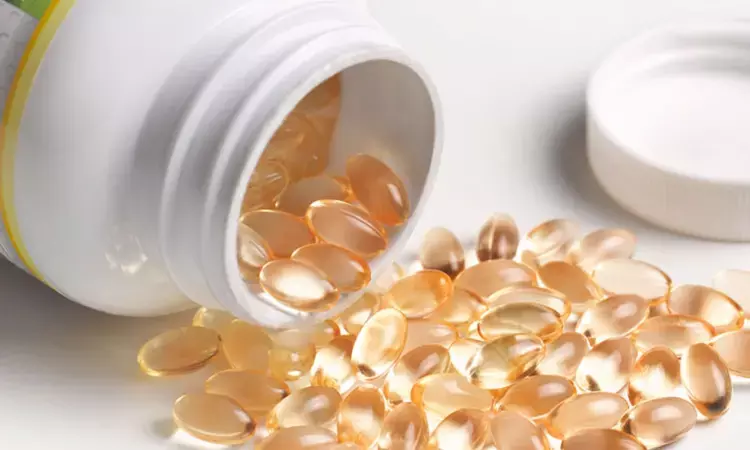- Home
- Medical news & Guidelines
- Anesthesiology
- Cardiology and CTVS
- Critical Care
- Dentistry
- Dermatology
- Diabetes and Endocrinology
- ENT
- Gastroenterology
- Medicine
- Nephrology
- Neurology
- Obstretics-Gynaecology
- Oncology
- Ophthalmology
- Orthopaedics
- Pediatrics-Neonatology
- Psychiatry
- Pulmonology
- Radiology
- Surgery
- Urology
- Laboratory Medicine
- Diet
- Nursing
- Paramedical
- Physiotherapy
- Health news
- Fact Check
- Bone Health Fact Check
- Brain Health Fact Check
- Cancer Related Fact Check
- Child Care Fact Check
- Dental and oral health fact check
- Diabetes and metabolic health fact check
- Diet and Nutrition Fact Check
- Eye and ENT Care Fact Check
- Fitness fact check
- Gut health fact check
- Heart health fact check
- Kidney health fact check
- Medical education fact check
- Men's health fact check
- Respiratory fact check
- Skin and hair care fact check
- Vaccine and Immunization fact check
- Women's health fact check
- AYUSH
- State News
- Andaman and Nicobar Islands
- Andhra Pradesh
- Arunachal Pradesh
- Assam
- Bihar
- Chandigarh
- Chattisgarh
- Dadra and Nagar Haveli
- Daman and Diu
- Delhi
- Goa
- Gujarat
- Haryana
- Himachal Pradesh
- Jammu & Kashmir
- Jharkhand
- Karnataka
- Kerala
- Ladakh
- Lakshadweep
- Madhya Pradesh
- Maharashtra
- Manipur
- Meghalaya
- Mizoram
- Nagaland
- Odisha
- Puducherry
- Punjab
- Rajasthan
- Sikkim
- Tamil Nadu
- Telangana
- Tripura
- Uttar Pradesh
- Uttrakhand
- West Bengal
- Medical Education
- Industry
Higher-than-standard vitamin D not beneficial for child neurodevelopment: JAMA

Higher-than-standard vitamin D3 doses provide no systematic benefits for child neurodevelopment up to 2 years of age, suggests a study published in the JAMA Netw Open.
Vitamin D may be important for neurodevelopment. The optimal daily dose of vitamin D for early brain development is not known.
A group of researchers from Finland conducted a study to test whether a higher (1200 IU) vs standard (400 IU) dose of vitamin D3 has beneficial effects on neurodevelopment in the first 2 years of life and whether serum 25-hydroxyvitamin D concentration is associated with neurodevelopment.
This double-blind, interventional randomized clinical trial involved healthy infants born full-term between January 1, 2013, and June 30, 2014, at a maternity hospital in Helsinki, Finland, at the 60th northern latitude. Two-year follow-up was conducted by May 30, 2016. Data analysis was by the intention-to-treat principle. Data were analyzed from November 1, 2020, to May 31, 2021.
The results of the study are as follows:
· Of the 987 families recruited, 495 children were randomly assigned to receive 400 IU of vitamin D3, and 492 children were randomly assigned to receive 1200 IU of vitamin D3.
· A total of 801 families participated in the follow-up at 12 and/or 24 months, with 404 children in the 400-IU group and 397 children in the 1200-IU group.
· All children were of Northern European ethnicity. No differences were found between the 400-IU group and the 1200-IU group in the mean (SD) adjusted Ages and Stages Questionnaire total score at 12 months or 24 months.
· No differences were found between the 400-IU group and the 1200-IU group at 24 months in the mean (SD) adjusted Infant-Toddler Social and Emotional Assessment externalizing domain score, internalizing domain score, dysregulation domain score, or competencies score.
· The 1200-IU group did have a higher risk in the adjusted model of scoring 1.5 SDs or more on the externalizing domain score.
· Levels of serum 25-hydroxyvitamin D were not associated with the primary outcomes.
The researchers concluded that higher-than-standard vitamin D3 doses provide no systematic benefits for child neurodevelopment up to 2 years of age. However, the potential disadvantageous effects of higher doses could not be fully excluded; even if minimal, the potential nonbeneficial effects of higher-than-standard doses warrant further studies in which both safety and benefits should be evaluated.
Reference:
Effect of High-Dose vs Standard-Dose Vitamin D Supplementation on Neurodevelopment of Healthy Term Infants: A Randomized Clinical Trial.
Dr. Shravani Dali has completed her BDS from Pravara institute of medical sciences, loni. Following which she extensively worked in the healthcare sector for 2+ years. She has been actively involved in writing blogs in field of health and wellness. Currently she is pursuing her Masters of public health-health administration from Tata institute of social sciences. She can be contacted at editorial@medicaldialogues.in.
Dr Kamal Kant Kohli-MBBS, DTCD- a chest specialist with more than 30 years of practice and a flair for writing clinical articles, Dr Kamal Kant Kohli joined Medical Dialogues as a Chief Editor of Medical News. Besides writing articles, as an editor, he proofreads and verifies all the medical content published on Medical Dialogues including those coming from journals, studies,medical conferences,guidelines etc. Email: drkohli@medicaldialogues.in. Contact no. 011-43720751


